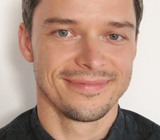I had a minor revelation at the weekend whilst talking about why I became a psychiatrist. It’s one of the careers that never fails to excite further questions when you’re getting to know people. I feel like I’ve told my story a thousand times. That’s why it felt so strange to get a new personal insight in the retelling; talking about my choice was such a familiar experience.
Herminia Ibarra wrote about the importance of personal stories in leadership in her article “The Authenticity Paradox” for the Harvard Business Review. In it she stresses the need for leaders to be aware of their stories but not to be limited by them. Being “true to oneself” should not be about staying in your comfort zone. If we’re to truly grow as leaders then we must try out different ways of being and leading to build new skills in order to feel connected to our identities for future, more demanding challenges.
My hackneyed personal story is that my journey into psychiatry was the drawer of the holistic nature of the specialty. I knew no doctors when I was growing up, and I’d built my own template of what I thought a doctor was. As a medical student, psychiatry was the specialty that seemed to fit best with my blue print; it addressed the whole person, it considered all aspects of their lives and it relieved deep suffering. And that’s what I wanted to be doing.
My new insight came from a twist in giving my story for the umpteenth time.
“I didn’t really know any doctors. All I knew was what I had learned from the telly.”
“What, you mean from watching Casualty?”
“Ha – Yes! That kind of stuff. I was gripped by the immediate relevance of medicine to people’s lives. I liked the drama, and the story. Psychiatry is full of story.”
That was the link. The joy of being a doctor, and a fascination with narrative has led to a career where I’m allowed to be curious about people’s lives. Understanding and exploiting the power of narrative has helped me in my professional development. Its allowed me to play to my strengths and ensured I’ve kept motivated.
Developing skill with narrative has also aided my growth as a leader. Creating a compelling vision, and engaging others through stories with emotional impact are key tools. Current programmes at the NHS Leadership Academy help leaders gain confidence in dialogue and articulating a possible future to others.
Connecting with one’s evolving personal story is key to growth as an authentic leader as Ibarra points out. Our “true self” is made up of many facets. Sticking to a rigid, static understanding of ourselves can lead to “stuckness,” and promotes us repeating mistakes. Experimenting with new ways of being helps create alternatives for getting the job done. Ibarra explains that this does not mean we should become flighty, or throw values out of the window. Finding the right “you” for a given situation is a natural part of change and growth. A fresh understanding of who we are and where we have come from enables us to get better at that.
Billy Boland is a consultant psychiatrist and associate medical director for quality and safety at Hertfordshire Partnership University NHS Foundation Trust. You can follow him on Twitter @originalbboland
Competing interests: I declare that I have read and understood BMJ policy on declaration of interests and I have no relevant interests to declare.

